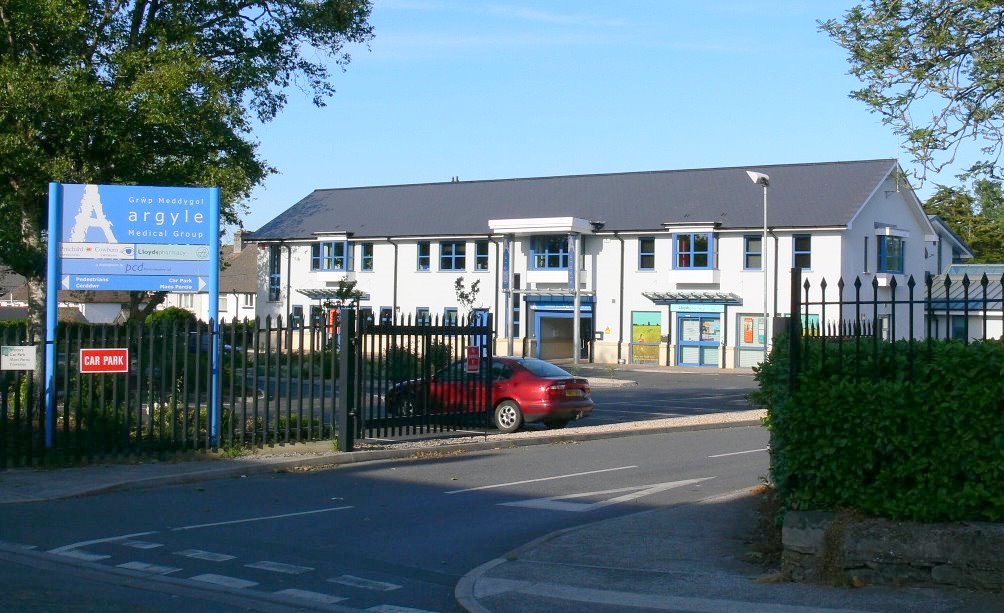Politics
‘Lack of clarity’ in Wales Bill

 A REPORT on the Wales Bill, published by the House of Lords Constitution Committee, has stated that the lack of clarity over the demarcation of powers between the UK Parliament and Welsh Assembly not only risks future litigation, but the need for further legislation to clarify the settlement.
A REPORT on the Wales Bill, published by the House of Lords Constitution Committee, has stated that the lack of clarity over the demarcation of powers between the UK Parliament and Welsh Assembly not only risks future litigation, but the need for further legislation to clarify the settlement.
The report welcomes the move from a ‘conferred powers’ model (where the Welsh Assembly can only legislate on matters specifically devolved to it) to a ‘reserved powers’ model (where Welsh Assembly can legislate on any subject not explicitly ‘reserved’ by the UK Parliament). The reserved powers model offers a relatively clear and simple division of powers, as well as allowing the Welsh Assembly ‘constitutional space to legislate’. However, the Committee say that the way the Wales Bill implements the reserved powers model undermines these key advantages.
The complexity of the settlement set out in the Wales Bill, in which numerous legal tests interact with hundreds of matters reserved to the UK Government and Parliament, risks the courts being asked to make decisions about whether the National Assembly for Wales has the power to make laws in certain areas. The Committee contrasts this with the simpler settlement set out in the Scotland Act 1998, where the subjects reserved to Westminster are relatively limited, ensuring greater clarity about the devolution of powers.
The Committee also point out that in some areas, the list of reserved matters is so extensive, and the number of legal tests that must be met for the Assembly to use its powers are so vague, that the switch to a reserved powers model is likely to actually result in a return of power from the Welsh Assembly to Westminster.
The Committee call on the Government to explain whether the Wales Bill is actually intended to reduce the legislative competence of the Welsh Assembly in some areas and, if not, what steps they plan to take to ensure that the competence of the Assembly is not inadvertently reduced.
The Committee notes, for example, that absolute restrictions on the Assembly’s ability to modify criminal law in relation to sexual offences may affect its ability to exercise its legislative competence in relation to the protection and well-being of children and young adults.
The Committee notes that there is ‘no evidence of a clear rationale’ for the powers devolved by the Wales Bill and calls on the Government to explain the principles which underpin the devolution proposals set out in the Bill.
The Committee points out that in its recent report, The Union and Devolution, it recommended that further devolution should be managed in a coherent way based on sound principles and clarity about the purpose of the proposed devolution. It says the Government has failed to provide a clear rationale for the scope of powers devolved by the Wales Bill.
Lord Lang of Monkton, Chairman of the House of Lords Constitution Committee, said: “My Committee have taken a long and serious look at devolution within the UK in the last year and we bring that experience with us in examining the Wales Bill.
“We welcome the Wales Bill’s move from a ‘conferred powers’ to a ‘reserved powers’ model of devolution. However, the list of reservations is so extensive, and the legal tests that govern the Assembly’s powers so complex and vague, that it could be a recipe for confusion and legal uncertainty. The outcome is likely to be increased litigation as the courts are asked to decide exactly where the boundaries of the Assembly’s authority lies.
“We are disappointed that there is no clear explanation from the Government as to the rationale for the scope of the powers being devolved under the Wales Bill. As we noted in our report, The Union and Devolution, devolution must take place on the basis of appropriate principles to ensure that the devolution settlements evolve in a coherent way, rather than in a reactive, ad hoc manner.
“The Bill also risks, in some areas, actually reducing the powers of the Welsh Assembly. We have asked the Government whether that was their intention, and if not, how they intend to avoid unintentionally diminishing the Assembly’s powers.
“The Wales Bill starts Committee Stage in the House of Lords next week. This is the first stage where amendments can be made and debated and where the detail of the Bill is examined closely. I hope our report will be helpful to the House in informing that debate.”
This week, the Director of the Welsh Governance Centre, Professor Richard Wyn Jones, also raised concerns that the Wales Bill was being ‘rammed through Parliament’, and suggested that it could be blocked by the Welsh Government. Speaking to the BBC, he said: “It is genuinely hard to find people who aren’t directly involved on the UK government side with a good word to say about this legislation, certainly in terms of the detail,” he said.
“What was striking, we did have a consensus, an all-party consensus, in terms of moving to a reserved powers model.
“What’s particularly depressing is, in the enactments of that good intention, we’ve reached a stage where everybody who is looking at this in a relatively dispassionate way is pointing to some fundamental problems.
“I don’t think that anybody is going into this wanting it to fail, in terms of the critics. This is the only piece of legislation on the table, there is a sense the status quo is unsatisfactory and so people want this to work.
“There have been lots of constructive suggestions for change from the Welsh Government, from the National Assembly presiding office, and yet the legislation is being rammed through Parliament with, so far, only very small changes being conceded.”
However, the Leader of the Welsh Conservatives, Andrew RT Davies, described the ‘landmark’ legislation as offering ‘greater clarity and accountability than ever before in the devolved era’.
“Labour had 13 years in power to address concerns over where power resides and made no meaningful attempt to establish a lasting settlement. Whereas Conservatives have delivered a significant breakthrough, demonstrating our party’s commitment to devolution and the place of Wales as a full partner in the UK,” he added after the MPs gave the Bill an unopposed third reading in September.
“We now have an opportunity to move on from constitutional affairs, and the Welsh Government must now make best use of the tools at its disposal and deliver for Welsh communities; creating jobs, developing the Welsh economy and improving our public services.”
Business
Community council objections to Tenby Lidl store scheme

PLANS for a new store on the edge of Tenby by retail giant Lidl, which has seen objections from the local community council, are likely to be heard next year.
In an application recently lodged with Pembrokeshire County Council back in October, Lidl GB Ltd, through agent CarneySweeney, seeks permission for a new 1,969sqm store on land at Park House Court, Narberth Road, New Hedges/Tenby, to the north of the Park Court Nursing Home.
The proposals for the latest specification Lidl store, which includes 103 parking spaces, would create 40 jobs, the applicants say.
The application follows draft proposals submitted in 2024 and public consultations on the scheme, with a leaflet drop delivered to 8,605 local properties; an information website, with online feedback form; and a public exhibition, held last December at the De Valence Pavillion in Tenby, with a follow-up community event held at New Hedges Village Hall, close to the site, publicised through an additional postcard issued to 2,060 properties.

Some 1,365 responses have been received, with 89 per cent of respondents expressing support for the proposals, the applicants say.
A supporting statement says: “Lidl is now exceptionally well established in the UK with the Company operating c.980 stores from sites and premises both within and outside town centres. Its market share continues to increase substantially, and the company is expanding its store network considerably. The UK operational model is based firmly on the success of Lidl’s operations abroad with more than 10,800 stores trading across Europe.
It adds: “The granting of planning permission for the erection of a new Lidl food store would increase the retail offer and boost the local economy. The new Lidl food store would create up to 40 employment opportunities for people of all ages and backgrounds, providing opportunities for training and career development. This in turn will create an upward spiral of economic benefits.”
Local community council St Mary Out Liberty Community Council has formally objected to the scheme, saying that, while it supports the scheme for a Lidl store in principle, recognising “the economic benefits a new retail store could bring,” it says the proposed location “is unsuitable, conflicts with planning policy, and cannot be supported in its current form”.
Its objections add: “The A478 is heavily congested in peak tourist months. A supermarket would worsen congestion, increase turning movements, and heighten risks to pedestrians, cyclists, and emergency access.”
It also raises concerns on the potential impact through “noise, lighting, traffic disturbance, and loss of quiet amenity” on a neighbouring residential care home.
An initial assessment by Pembrokeshire County Council, highlighted concerns about the visual impact, with the authority’s landscape officer commenting that the store would introduce “an intense urban function into an otherwise rural context”.
The report added: “It is not considered to be compatible with the character of the site and the area within which it is located; and furthermore, will lead to a harmful visual impact on the setting of the National Park.”
The application will be considered by county planners at a later date.
Local Government
£4m Plaid Cymru deal boost to Pembrokeshire council coffers

PEMBROKESHIRE’S financial situation for next year is some £4m better off after a higher settlement from the Welsh Government, but the council still faces difficult decisions, councillors heard.
While council tax makes up a proportion of the council’s annual revenue, a crucial area of funding is the Aggregate External Finance (AEF) rate from Welsh Government.
Pembrokeshire was to receive a 2.3 per cent increase on its settlement, a total of £244,318,000, amounting to an extra £5,493,000, placing it at joint 13th of the 22 local authorities in Wales.
Now, following a Welsh Government and Plaid Cymru agreement, local authorities including Pembrokeshire have received a better financial settlement.
Speaking at the December meeting of Pembrokeshire County Council, while presenting a report on the outline draft medium term financial plan (MTFP) 2026-27 to 2028-29, Cabinet member for finance Cllr Alistair Cameron said the recent rise in the financial settlement from the Welsh Government had decreased the expected funding gap for the next financial year for the county from £17.7m to £13.6m, but stressed: “There are still increased pressures we are going to have to face.”
His report for members outlined some of the pressures faced by the council in setting its budget for the next financial year.
“Based on the revised projected funding gap of £13.6m, it is evident that major budget savings as well as a significant Council Tax increase will be required in order to deliver a balanced budget for 2026-27. The lower the Band D Council Tax increase, the higher the budget savings requirement will be, with the consequential adverse impact on the provision of Council services and on the medium-term financial sustainability of the council.”
His report also noted the decision in October by members to cut the council tax premium on second homes from 150 to 125 per cent, which on its own has increased the funding gap for 2026-27 by £1.3m.
The report, listing the many pressures and potential savings, said that where possible, discretionary fees and charges income has been budgeted to increase by 3.8 per cent, with any increases above this level included as part of the budget savings options presented.
The report for members, prior to the revised settlement from Welsh Government, gave council tax increase options ranging from five to 10 per cent with 7.5 per cent highlighted as the most favoured option, the 7.5 rate equating to a £2.38 a week increase for the average Band D property; each one per cent increase or decrease in council tax being worth £0.908m for council coffers.
Leader of the Conservative group on the council Cllr Di Clements made a plea to the leader, calling on the council to use the extra money from Welsh Government to “contribute to making this authority financially sustainable in the long term,” adding: “We know it’s tough out there for our council tax-payers, let’s hopefully give them a break this year.”
Independent Group leader Cllr Huw Murphy said the better settlement was “a huge sigh of relief” for the council, adding: “The budget negotiations still won’t be any easier because we’ve had this pot of money; [but] we have to applaud Plaid Cymru on this.”
A long string of recommendations essentially noting the report, but including the fees and charges increase, was moved by Cllr Cameron, seconded by Leader Cllr Jon Harvey, backed by members by 46 votes to one, with three abstentions.
The actual setting of the budget and related council tax level along with any potential savings and cuts, will be decided at a later date, with a public consultation running to January 4, followed by committee scrutiny ahead of Cabinet considering a revised draft budget on February 9, before it is recommended to full council on February 20.
News
Kurtz criticises Tufnell over GP pressures at Argyle Medical Centre

Local MS says Welsh Government decisions are root cause of crisis
CONSERVATIVE Senedd Member Sam Kurtz has criticised Labour MP Henry Tufnell after the MP suggested GP practice management should be held accountable for patient dissatisfaction at Pembroke Dock’s Argyle Medical Centre.
Patients registered at the surgery have for years raised concerns about access to appointments, particularly difficulties securing same-day consultations and long waits to get through on the phone.

Speaking to BBC Wales, Mr Tufnell said he had discussed the situation with the Health Board’s Chief Executive and claimed the senior official “feels powerless” to intervene.
He said: “I’ve spoken to the Chief Executive of the Health Board, and he feels powerless to do anything about it. We need to come together and hold the management of these surgeries to account; there must be transparency about what they’re doing, and, fundamentally, we need reform in the system.”

Mr Kurtz responded angrily, arguing that responsibility for reforming NHS Wales rests with the Welsh Government, not GP surgeries or frontline staff.
He said: “I don’t think it’s very helpful to point the finger at the surgery and suggest the fault lies with them when staff are working incredibly hard.
“If he wants to point the finger, it should be at his Labour colleagues in Cardiff Bay, who have continuously piled pressure onto GP practices by imposing contracts that are extremely difficult to deliver. That is why surgeries like Argyle are under such strain.”
Mr Kurtz later told The Pembrokeshire Herald that the problems faced by GP practices across Pembrokeshire were the result of long-term policy failures rather than poor local management.
“As someone born and raised in Pembrokeshire, I have seen first-hand the damage caused by the Welsh Labour Government’s mismanagement of our local NHS, despite the dedication and professionalism of frontline staff who continue to do their very best in increasingly challenging conditions,” he said.
“Anyone seeking to place the blame on NHS staff should back off. The fault does not lie with them. Real improvement will only come through properly supporting GP practices, listening to their concerns and working with them rather than against them.”
Argyle Medical Group is the second-largest GP practice in Wales, serving around 25,000 registered patients with nine GPs — an average of approximately 2,800 patients per doctor. In 2021, the practice had the equivalent of 10.75 full-time GPs and was actively seeking to recruit more.
However, ongoing recruitment difficulties forced Argyle to withdraw from its contract at St Clement’s Surgery in Neyland and reduce hours at St Oswald’s Surgery in Pembroke. Following the Neyland closure, patients were transferred to the Neyland and Johnston Medical Practice, which later handed back its GP contract after retirements and further recruitment problems. Those patients are now treated by salaried and locum GPs employed by the Health Board.
Similar pressures are being felt across Pembrokeshire, from Tenby in the south-east to St Davids in the north-west. While Wales does not face “GP deserts” on the same scale as the well-documented shortage of NHS dentists, reduced access to general practice has contributed to more patients attending hospital for conditions once routinely dealt with by GPs. This has placed additional strain on hospital services and staff.
In 2018, the Welsh Government pledged to recruit 1,000 additional GPs into NHS Wales. While overall GP headcount has risen, the number of full-time GPs has continued to fall. Many newer recruits work part-time, as locums, or on limited contracts, meaning fewer doctors are available in practice on a day-to-day basis.
Newly qualified GPs have also tended to favour larger urban centres, particularly along the M4 corridor and in north-east Wales, where professional support and career opportunities are greater. Critics argue that Welsh Government recruitment and retention strategies have failed to address persistent shortages in rural and coastal communities.
There are also ongoing shortfalls in independent prescribing pharmacists and community nursing staff, limiting efforts to relieve pressure on GP surgeries.
Mr Kurtz said: “The foundation of NHS care — with GPs as the first point of contact — has buckled. Blaming GP staff is a distraction. The issues are structural, long-term and political, and ultimately the buck stops in Cardiff Bay.”
-

 Crime2 days ago
Crime2 days agoMilford Haven man jailed after drunken attack on partner and police officers
-

 News5 days ago
News5 days agoDyfed-Powys Police launch major investigation after triple fatal crash
-

 Crime2 days ago
Crime2 days agoTeenager charged following rape allegation at Saundersfoot nightclub
-

 Crime3 days ago
Crime3 days agoMan charged with months of coercive control and assaults
-

 Crime4 days ago
Crime4 days agoMan sent to Crown Court over historic indecent assault allegations
-

 Crime6 days ago
Crime6 days agoMan spared jail after baseball bat incident in Milford Haven
-

 Crime4 days ago
Crime4 days agoMilford Haven man admits multiple offences after A477 incident
-

 Crime3 days ago
Crime3 days agoWoman ‘terrified in own home’ after ex breaches court order




















